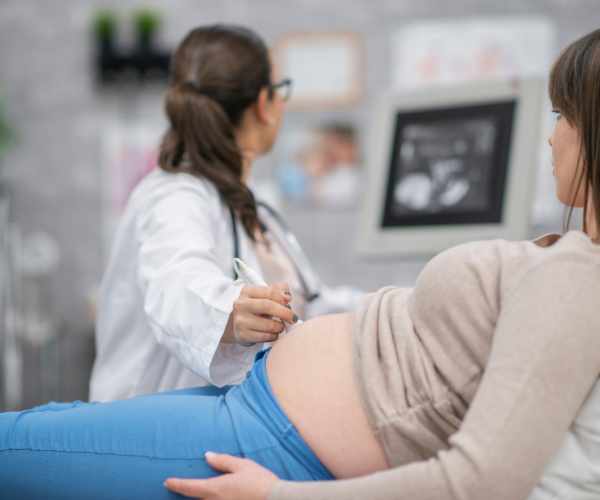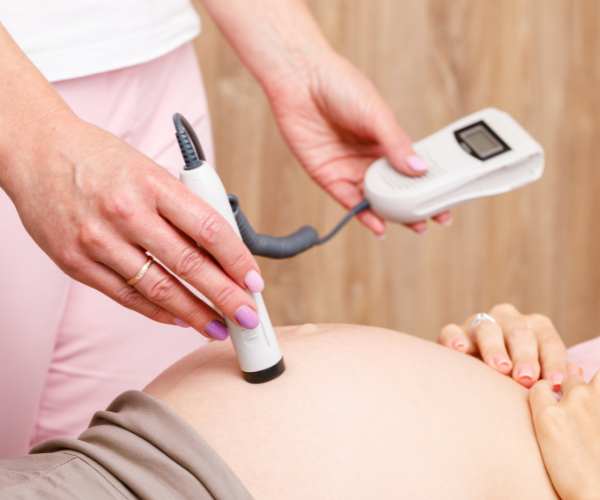At this stage of pregnancy, the treatment focuses on the fetus’ formation and the health of the woman. This is a very sensitive stage as it sets a tone for the growth of the baby and the health of the mother.
Scientific studies suggest that between half and two-thirds of pregnant women suffer nausea during this period, known as morning sickness. The loss of appetite indicates the body adapting to the requirements of pregnancy hormones.

What You Will Learn
- Stages of Pregnancy: A breakdown of the first and second trimesters, including significant developments for both mother and baby.
- Symptoms by Trimester: Common physical and emotional changes in each trimester and what they mean for the health of the mother and fetus.
- First Trimester Complications: Key warning signs to watch for in the early stages, such as severe nausea and miscarriage risk.
- Second Trimester Symptoms & Challenges: What to expect during the second trimester, including physical changes, skin symptoms, and potential complications like gestational diabetes.
- Medication and Supplement Guidance: Recommended vitamins and nutrients crucial for fetal development and maternal health during pregnancy.
- Preventative Health Tips: Exercise, nutrition, and lifestyle recommendations to support a healthy pregnancy journey.
- Mental Health and Stress Management: Techniques for managing stress and mental health challenges throughout pregnancy.
Pregnancy Sign Nature and First Trimester Symptoms You Can Expect
Many women experience a range of symptoms as their bodies adjust to pregnancy:
- Nausea: About two-thirds of pregnant women complain of nausea, which can be mild.
- Fatigue: Estimated that about 80% of pregnant women experience significant fatigue due to hormonal changes.
- Gassiness and Bloating: Hormonal changes may cause digestive issues like gas and bloating, affecting nearly half of pregnant women.
Although these symptoms may be uncomfortable, many are physiological, meaning your body is functioning optimally to support the baby’s growth.
Complications in the First Trimester
During the first trimester, it is crucial to understand potential risks. Miscarriage rates are highest in this trimester, with 10 to 20% of known pregnancies ending in miscarriage, primarily before the thirteenth week.
Severe abdominal pain or heavy bleeding may suggest a complication. Early prenatal care can often identify and address any issues early on.
First Trimester of Pregnancy: Duration
The first trimester spans from conception to the twelfth week. It is a period of significant development and adjustment for both the fetus and mother.
What Predicts Change During the First Trimester?
Hormonal changes, particularly human chorionic gonadotropin (hCG) and progesterone, cause various physical and emotional alterations. For instance, hCG levels increase 2-3 times every 48-72 hours, peaking between the eighth and eleventh weeks, often associated with symptoms like nausea and fatigue.
First Trimester of Pregnancy – How to Avoid Problems?
Mothers should embrace health education as a way of minimizing the impacts of early pregnancy. Antenatal classes prepare both the mother and baby for what to expect during pregnancy and promote a healthy lifestyle.
WHO recommends timely and comprehensive antenatal care to reduce risks for both mother and baby. Frequent maternal ANC visits contribute to better perinatal outcomes.
Common Medicines Taken in the First Trimester
Prenatal vitamins support the fetus’s development. These vitamins often include essential nutrients such as:
- Folic Acid: Prevents neural tube defects; recommended 400-800 micrograms daily.
- Iron: Supports blood volume increase and prevents anemia, with a recommended intake of 27 mg daily.
Treatment Options in the First Trimester
Support systems, like antenatal classes and support groups, provide avenues for experience sharing and guidance. Practices like yoga or meditation can help manage stress and maintain emotional stability.
A Brief Look into the Second Trimester of Pregnancy (Weeks 13-26)
Identity in the Second Trimester
The second trimester is often more comfortable for pregnant women, with many discomforts of the early stages easing, and an increase in energy is common.
Symptoms in the Second Trimester
As nausea subsides, energy levels return. However, some symptoms may persist:
- Cramps and Bloating: Due to the uterus’s growth, affecting about one-third of women.
- Growing Belly: Belly expansion becomes more noticeable.
- Skin Changes: Hormonal changes may lead to linea nigra or darkening of the areolas.
Second Trimester Complications to Watch
Gestational diabetes affects around 2-10% of pregnancies in the United States, often between weeks 24 and 28. Routine glucose screenings are advised, especially for African American women.
Duration of the Second Trimester
The second trimester spans from the thirteenth to the twenty-sixth week. The fetus grows rapidly, approximately doubling in size during this period.
Second Trimester Problems: Prevention Tips
Exercise during pregnancy is encouraged to support a healthy pregnancy. According to the American College of Obstetricians and Gynecologists, pregnant women should aim for 150 minutes of moderate exercise per week.
Common Medications in the Second Trimester
- Iron Supplements: Prevent anemia as blood volume rises.
- Calcium and Vitamin D: Supports fetal bone formation, with a daily recommendation of 1000 mg of calcium.
Treatment Options in the Second Trimester
Routine ultrasounds (around 20 weeks) and blood tests help monitor fetal development and screen for potential issues. Open communication with healthcare providers is key to a healthy pregnancy.
FAQs
What to Do If Experiencing Severe Nausea During the First Trimester?
Hyperemesis gravidarum is a severe form of nausea affecting 1-3% of pregnancies. Key steps include:
- Consult Healthcare Provider: They may prescribe medications like ondansetron or metoclopramide.
- Stay Hydrated: Use electrolyte-rich solutions and soups.
- Nutritional Adjustments: Small, frequent meals, especially starchy foods like crackers, can help.
- Alternative Therapies: Ginger capsules, acupuncture, or vitamin B6 can reduce nausea.
How to Reduce Stress During Pregnancy
- Mindfulness and Meditation: Simple meditation practices can reduce anxiety.
- Physical Activity: Walking or prenatal yoga can improve mood and reduce stress.
- Support Systems: Engaging with friends, family, or support organizations provides emotional support.
Symptoms That May Indicate Complications in Each Trimester
- First Trimester: Severe abdominal pain or heavy bleeding.
- Second Trimester: Severe headaches or vision changes, potentially signaling preeclampsia.
- Third Trimester: Swelling in hands and face or decreased fetal movement.
When to Seek Mental Health Assistance During Pregnancy
Women experiencing persistent sadness or anxiety should seek medical help promptly. Indicators include:
- Persistent Sadness or Anxiety: Hinders daily activities or bonding with the baby.
- Changes in Sleep or Appetite: Significantly impacts physical or emotional health.
Resources for Expecting Mothers
Expecting mothers can access:
- Antenatal Classes: Workshops on childbirth, breastfeeding, and postpartum care.
- Health Services: Ultrasounds, blood tests, and prenatal guidance.
- Online Resources: Reliable sites such as the American Pregnancy Association and March of Dimes offer pregnancy health and parenting tips.
Conclusion
Pregnancy is a transformative journey, bringing both challenges and immense joy as each stage unfolds. With the right knowledge and preparation, expectant mothers can navigate the physical, emotional, and health-related changes that occur from the first trimester through to birth. By engaging in prenatal education, seeking timely healthcare, and embracing supportive practices like exercise, meditation, and community resources, women can enhance their well-being and foster a healthy environment for their growing baby. Armed with awareness and empowered by guidance from healthcare providers, mothers can confidently approach each stage, prepared to face the demands and beauty of pregnancy with resilience and confidence.






